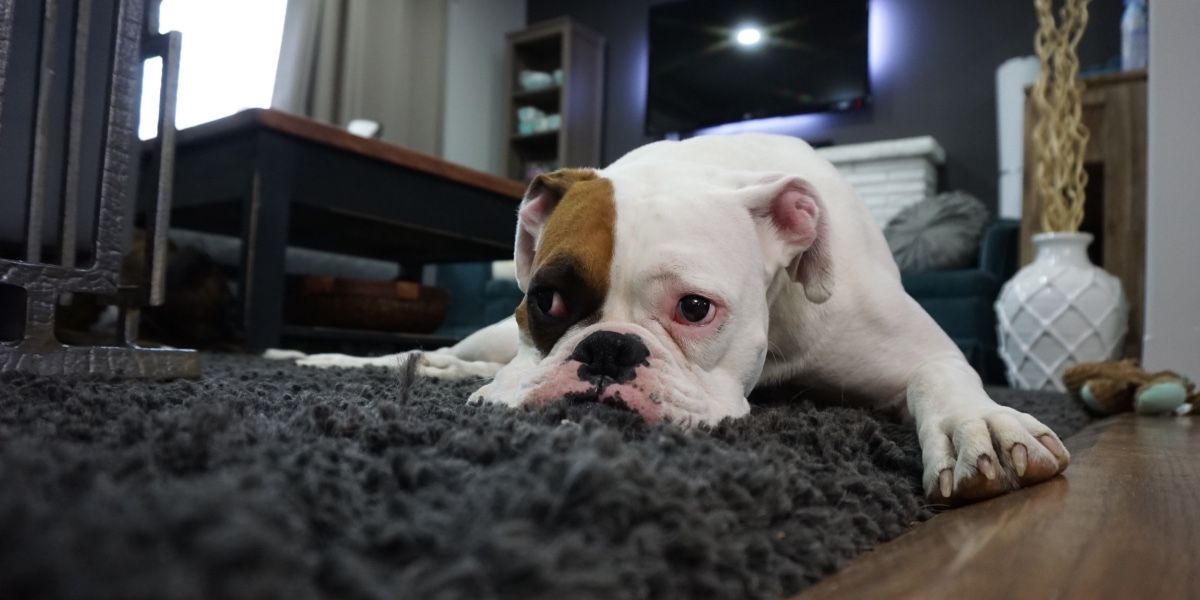WELLNESS WEDNESDAY - JULY 25TH, 2018

SEPARATION ANXIETY 101
It's Wednesday and with that comes The Ark's Wellness Wednesday post. Today we are talking Separation Anxiety 101. According to Dr. Nick Dodman, studies show that 20% of the nation's 80 million dogs have separation anxiety. However, for senior dogs that number is around 29% to 50%. So according to studies you can see this behavioral problem develops in every other hyperactive dog. Let's take a deeper look into what separation anxiety really is, as well as symptoms, reasons and treatment options to help you and your dog deal with this behavioral issue.
WHAT IS SEPARATION ANXIETY
Separation anxiety in dogs is described as a condition in which a dog exhibits distress and behavior problems when separated from its handler. Separation anxiety typically manifests within 30 minutes of departure of the owner. The level of anxiety ranges from mild to severe levels. The good news is, you can treat it by proper, patient and consistent training, and a little behavior change for the dog owner.
SYMPTOMS OF SEPARATION ANXIETY
From birth, dogs are used to living in packs. Because of this, being alone can appear stressful to them. They develop a sense of fear that their owners have abandoned them. The symptoms of separation anxiety can vary from dog to dog, but in general the following are sigs of stress.Loud howling or crying noises
- Loud howling or crying noises
- Destructive behavior (furniture, doors, stuffed toys, etc.)
- Excessive barking
- Indoor urination or defecating
- Attempts of escape from home
- Following you around the ouse when the time of departure comes near, and making sad faces
REASONS OF SEPARATION ANXIETY
There are several reasons behind the development of separation anxiety in dogs. Below are just a few of those reasons.
- DAILY ROUTINE - A change in a dog or the families daily routine can be an onset of separation anxiety for some dogs. Luckily, if you have other family pets, the your dog ca cope better with the change in routine.
- RESCUE DOG - If you have a rescue or newly adopted dog, separation anxiety is a common occurrence. This is because they haven't gotten used to their new environment yet. Rest assure the anxiety should subside once they adjust.
- PROLONGED SEPARATION TIME - Much like a change in daily routine, when separation times are prolonged your pup can suffer from separation anxiety. The increase in separation gives the dog a sense of abandonment thus causing them to have anxiety.
- SHIFTING FORM PLACE TO PLACE - If you travel a lot with your dog, you could be causing them to have separation anxiety. Shifting from one place to another during trips or permanently can lead to or cause your pup to suffer.
- DEATH OF A FAMILY MEMBER OR PET - Unlike humans, dogs lack an understanding of the phenomenon of life. So when a family member or pet dies, this could create anxiety and stress in a dog.
- NEW BABY - If you welcome a new baby, new pet or even a new visitor into your life this could be an invitation for separation anxiety.
- TO MUCH TIME AWAY - If your dog spends a longer than normal time away form you, whiter it be as a boarding kennel, veterinary clinic or a pet sitter, they may develop separation anxiety.
As you can see dogs need a sense of routine so any change in their routine can give them stress and therefore they develop separation anxiety.
TREATMENTS
Mild separation anxiety can be treated by employing methods of mental stimulation and positive reinforcement during departure times. It's a good idea to leave your dog with puzzle toys that house their favorite treats. Making this an on going routine and your dog will start to associate your departure with the treats and they will keep them excited in a good way. However, it is recommend that you DO NOT give those treats to your pup while you are at home. The key is to stay consistent.
Severe separation anxiety can be used by adopting methods like counter-conditioning and desensitizing. This type of training method, you have to stay normal during departure and arrival times. Keep the cuddling for when your pup is calm and gentle. Whenever they show overexcited behavior, don't promote it with loving on them or petting them. Be stern with them even though you might be dying on the inside.
The rule of thumb is "be consistent". When you show inconsistent behavior this causes confusion in the dogs mind as to what is acceptable and what's unacceptable. It's always good to talk with your veterinarian about the best way to go about with treating separation anxiety.
Whether you think your dog suffers form mild or severe separation anxiety, doggy daycare is always a great option to help ease their anxiety. The Ark offers doggy daycare and even offers money saving daycare packages. Doggy daycare is a great way for dogs to release that extra energy that can be causing anxiety. At daycare your pup will never have to be alone. They will have time for socializing with other fur friends during free play and some time to rest during quite time. All the while under the care of The Ark's pet loving crew. Sending your pup to doggy daycare can also help ease your mind and you can watch them throughout the day on our pet cams. If this sounds like the perfect solution for you and your pet then give your local Ark a call today and sign your pup up!
Resources: www.fitbark.com

